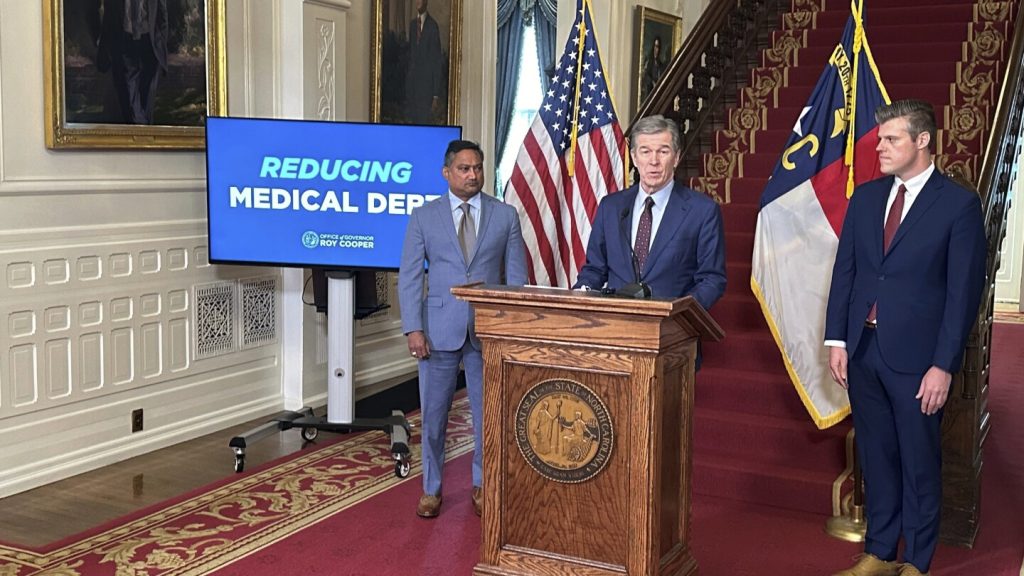North Carolina Governor Roy Cooper’s administration has received approval from federal Medicaid regulators for a proposal that offers hospitals in the state a financial incentive to eliminate patients’ medical debt. This initiative aims to help low- and middle-income individuals get rid of $4 billion in debt, benefiting an estimated 2 million residents. The plan, described as a first-of-its-kind proposal in the country, involves enhanced Medicaid reimbursement payments for hospitals that participate in the Healthcare Access and Stabilization Program.
The program, approved by the General Assembly last year along with provisions for Medicaid expansion, will provide hospitals with higher levels of reimbursement if they choose to cancel the medical debt of certain patients. Hospitals must also provide discounts on medical bills for low- and middle-income individuals, enroll them in charity care programs, and cap interest rates on medical debt. While some hospitals initially reacted negatively to the proposal, many have engaged with state officials to provide feedback and advice on implementation.
State officials anticipate that debt relief for individuals under the program will occur in 2025 and 2026. The future of the program may depend on the outcome of the upcoming gubernatorial election, as Governor Cooper’s term ends in January. Other states and local governments have utilized federal funding from the American Rescue Plan to purchase and cancel residents’ medical debt. Vice President Kamala Harris, who expressed support for North Carolina’s initiative, has been working with President Joe Biden to forgive medical debt and urged other states and cities to follow suit.
Cooper’s administration views the debt relief program as a way to improve the health and well-being of North Carolinians while supporting the financial sustainability of hospitals. By incentivizing hospitals to eliminate medical debt and discourage future liabilities, the state aims to address the financial burdens faced by many low- and middle-income individuals. The proposal has received praise from Vice President Harris, who commended North Carolina for setting an example that other states can emulate in forgiving medical debt and supporting residents in need.
The initiative, which focuses on providing financial incentives for hospitals to cancel patients’ medical debt, has the potential to positively impact millions of low- and middle-income individuals in North Carolina. By enrolling hospitals in the Healthcare Access and Stabilization Program and offering enhanced Medicaid reimbursement payments, the state aims to alleviate the financial strain faced by residents and improve access to quality healthcare services. As state officials work to implement the program in the coming years, they hope to establish a model that can be replicated and adopted by other states to address the issue of medical debt nationwide.


